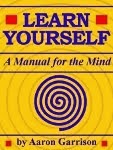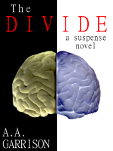"There are three kinds of lies: lies, damned lies, and statistics."
We've all seen the quote, it's certainly made the rounds -- but that makes it no less true. Statistics are rascally things. They seem to prove an argument or point, when they could, in reality, harbor hidden flaws which render them invalid -- but only if you look closely. On the surface, they can appear every bit sound. And, considering the surface is where the examination of many people begins and ends, we see the potential for abuse.
When I first read of the term "independent event," as used in the context of probabilities, it dug up my grievances with statistics all over again. When an event is classified as "independent," probability-wise, it means that it has no connection to any past events, as to be free from influence on its probability -- but what if there is a connection between these events, it's just not obvious or known? Say, some hidden, unseen force which connects events with no overt connection? Then, the statistical reality will differ from actual reality, because that connection is not expressed within the probability's calculation. This is one way in which statistics can achieve their deceit.
As it were, I was introduced to the probabilistic concept of independent events in a book: This Book Does Not Exist. Though I'd understood the concept for life or close to it, I'd never, until then, been aware of its formal term. So the book was educational for me, however I disliked the concept's rigidity.
I read of "independent events" in the afternoon, finished This Book Does Not Exist that evening, then moved on to another book that night.
My new book was a random investment book sent to me by a friend, in the same shipment as This Book Does Not Exist. The two books are very different, one being about investing in stock-market index funds, the other being about paradoxes and other logical head-scratchers. Yet, this investment book I started contained a paragraph on none other than ... independent events, used in a probabilistic context.
After being unaware of the formal concept of independent events for all my thirty years, I was exposed to it in two back-to-back books, read entirely randomly (and sent to me as randomly by my friend). A classic book-synchronicity, as has happened to me many times.
But here's the clincher: the synchronicity demonstrates the limitation of the traditional definition of "independent events." On the surface, the recurrence of the concept between the two books would appear every bit to be a chance coincidence, though a somewhat unlikely one. Only when the context is considered (that I'd never before known the term, and that I've experienced enough nearly identical "coincidences" involving random books read back-to-back to establish a distinct pattern of phenomenon) do we see the potential for some connection in the term's recurrence, albeit an obscure, hidden, unknown connection.
The recurrence of "independent events" wasn't an independent event, it seems. The irony.
Sunday, September 22, 2013
Wednesday, September 18, 2013
9/18/13: Dark Visions
Find my short horror story, "Variations of Soullessness," in Dark Visions, a new horror anthology fresh from Grey Matter Press.
Link
Saturday, September 7, 2013
Subscribe to:
Posts (Atom)



















